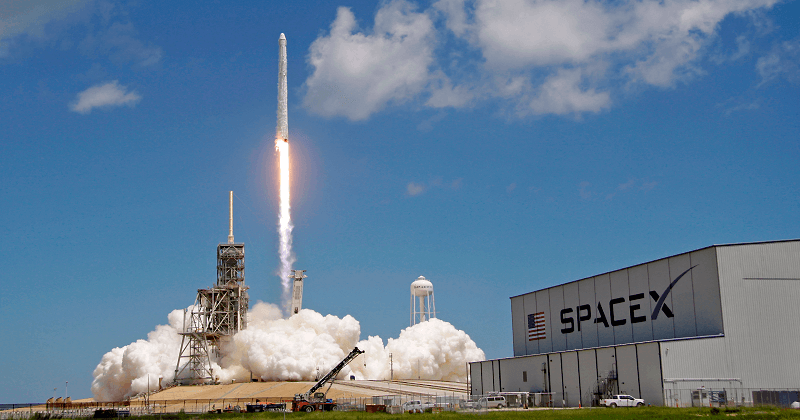
Elon Musk’s SpaceX postponed a planned Wednesday night (May 15) blast-off of a Falcon 9 rocket carrying the first 60 satellites for his new Starlink Internet service, citing excessive winds over the Florida launch site.
The launch of the mission, aimed at placing the initial stage of Mr Musk’s space-based global Internet network into low-Earth orbit, was rescheduled for 10.30pm on Thursday (10.30am on Friday Singapore time) from the Cape Canaveral Air Force Station, SpaceX said.
In a call with reporters before Wednesday’s countdown was halted, the high-tech entrepreneur praised the “fundamental goodness” of his ambitions to expand Internet connectivity globally, a mission known as Starlink, but cautioned that success was far from guaranteed.
Mr Musk said he expects launch services revenue to top out around US$3 billion (S$4.1 billion) per year, making Starlink key to generating the cash that privately held SpaceX needs to fund his larger dream of developing a new craft capable of flying paying customers to the Moon and eventually trying to colonise Mars.
“We think this is a key stepping stone on the way towards establishing a self-sustaining city on Mars and a base on the Moon,” said Mr Musk, who is also the chief executive officer of automaker Tesla.
A rocket with the first 60 Starlink satellites was due to blast off from the Cape Canaveral Air Force Station in Florida at 10.30pm (10.30am on Thursday Singapore time). Each satellite weighs 227kg, making this the heaviest payload for any SpaceX rocket to date.
At least 12 launches carrying similar payloads are needed to achieve constant Internet coverage of most of the world, Mr Musk said. Starlink is currently authorised for operations only in the United States.
Mr Musk faces stiff competition. In February, Airbus SE-backed OneWeb launched its own clutch of satellites, while LeoSat Enterprises and Canada’s Telesat are also working to build data networks.
In each plan, the tiny satellites orbit closer to Earth than traditional communications satellites, a radical shift made possible by leaps in laser technology and computer chips.

Post Your Comments